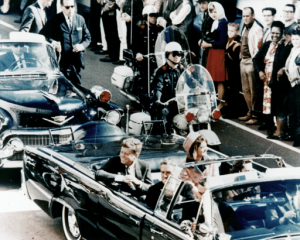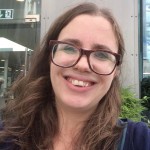Why is the assassination of JFK such a significant historical event?
22nd November sees the 50th anniversary of the assassination of John F. Kennedy. The murder of the 35th president of the United States of America shook the world. For a long time, people would ask “Where were you when you heard?”. Now, fifty years on from the tragic events, we can look back and consider why Kennedy’s death imprinted on the public memory so vividly.
John F. Kennedy was a breath of fresh air in Washington. He was the first Catholic President. He was (and remains) the youngest ever President (43 at his inauguration) and he had a beautiful wife and young children. His presidency had certainly not been without its tensions (most notably with the Cuban missile crisis in 1962 which took the world to the brink of nuclear war) but in November 1963 JFK’s image was of youth, success and political power.
On Friday 22nd November 1963, Kennedy and his wife Jackie were enjoying a tour of Dallas, Texas. They were in an open top car waving as they passed by crowds of admirers, when suddenly three gunshots were heard. Immediately JFK’s hand dropped down and blood was seen dripping from his head. He had been shot in the head and died shortly afterwards.
“the first assassination of a world figure that took place in the age of television”
It is difficult to overestimate the shock and sadness that captivated America in November 1963; the murder of their young president, his beautiful wife tearful and bloodstained (“let them see what they have done”), his young son saluting his coffin at the funeral. Just two days later the world was stunned again. As Kennedy’s alleged assassin, Lee Harvey Oswald, was transferred between prisons, he was shot dead by Jack Ruby, a nightclub owner. Television cameras there to capture the prison transfer instead broadcast Oswald’s murder live to an incredulous American public. “I did it for Jackie Kennedy”, Ruby told the police.
Shortly after the funeral, Jackie gave an interview in which she described her husband’s presidency as similar to Camelot, a beautiful, magical time. One immediate consequence of the shocking murder was that Kennedy became idealised in American culture and history. It took a while for historians to be able to look back and objectively assess his legacy, without being blinded by hagiography.
In his last few months Kennedy had become interested in the civil rights movement. Lyndon B. Johnson, who was sworn in as President in the harrowing hours after Kennedy’s death, promised that he would use Kennedy’s legacy to introduce equality legislation. The far-reaching Civil Rights Act of 1964 and the Voting Rights Act of 1965 were both passed in part as a result of the groundswell of political sympathy generated by Kennedy’s assassination.
John F. Kennedy’s death was shocking, therefore, not just because it was the senseless assassination of a young husband and father, but because it was the first murder played out in technicolour for all the world to see. This is why a generation was united by the question, “Where were you when you heard about JFK?”

